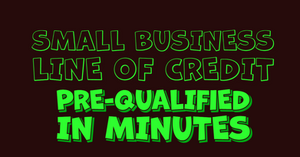A recent survey demonstrated that nearly 2 in 3 small business owners sought loans for their businesses in 2021. However, small business owners should have advance notice of what lenders are looking for from potential borrowers in 2022. This article gets at some of the characteristics lenders will ask borrowers who wish to secure financing for their businesses.
By Thomas Tramaglini, Managing Director at BRP Onesta
info@BRPOnesta.com
www.backofficedepot.com
www.thomastramaglini.com
About Thomas Tramaglini
1. Business Credit
Business Credit should never be ignored – that is, generating business credit can be a difference maker when accessing secured or unsecured financing. Simply, business credit is how successful a business is in paying its bills which are linked to the business’s Employee Identification Number, not the owners Social Security Number.
If you are not sure if you have business credit, you can use a tool like NAV.com for free to see if you have any current business credit.
Some companies have programs where you can build your business credit. BRP Onesta has an affordable program where business owners can access and build their business credit with hundreds of different tradelines (Click Here to Access).
2. Time in Business
Time is business is very important for small business owners as lenders traditionally want to lend to businesses that have history versus a startup. The longer the time in business, the likelier it is that the business will continue to be in business therefore increasing the changes the loan will be paid back.
Lenders prefer a track record of successfully servicing previous loans and history of running a business. This makes it more difficult for new businesses to get funding as lenders are less likely to take the risk of lending to new businesses, especially those in business less than 2 years.
3. Business Borrowing History
Many lenders will check previous loan or borrowing history, including how the small business owner paid his or her bills in other business transactions. Lenders want to see positive payment histories, as well as few inquiries, late payments, collections, or mass UCC filings. Further, if a small business has had previous poor history with alternative lenders those lenders may have filed a lawsuit or judgement against the business ultimately blacklisting the small business from subsequent borrowing.
This article lays out several ways that your small business may be blacklisted by alternative or internet lenders.
4. Personal Credit Scores
Lenders will almost always do a soft or hard pull on the business owners’ personal credit, as their credit score is an indicator of their credit worthiness. Newer businesses will tend to be evaluated more from the owner’s personal credit than other factors, such as revenue or number of deposits. Further, many times credit score weighs into risk, which drives interest or factor tiers for total payback. Naturally, the better the credit history, the better the loan options will be for the borrower.
So, before applying for financing, it is important for small business owners to grasp their personal credit history and understand how it will impact their borrowing.
5. Cash Flow
Cash flow is a very important part of what the underwriters look at when reviewing a loan request. The lenders want to ensure that the business owner can service the debt that they are accruing. That is, the lenders want to know that the business owner can make the payments, with some form of reasonable cushion.
Some of the components of cash flow include the number of deposits that are made each month, the average daily balance of the business bank account(s), the number of NSFs and negative days, and the amount of revenue versus the expenditures made by the business. Further, it is not uncommon for lenders to review the types of expenditures made. For instance, if a business owner is continually making non-business-related expenditures using the business account, it can be a red flag to lenders that spending routines are not routine.
6. Collateral
Some banks, as well as credit unions will secure some of the loans that they made. Most SBA loans can carry some sort of guarantee with collateral, but banks cannot decline the SBA application just because the small business owners do not have collateral. In many cases, loans that are secured with collateral have longer terms and lower interest rates. However, this is only in retrospect of what other conditions that the lenders have in reviewing their loans.
7. Industry
Some lenders look at some industries different that other industries. For instance, industries like restaurants are less risks than residential construction companies that have only a few deposits a month. The team at BRP Onesta has a list of restricted or risky industries by NAICS code on its website.
Finding loans that suit your needs
As you can see, there are several different aspects of a small business that lenders look at. We highly suggest you have one of our experts review your financing needs before you apply. Doing so can help you protect your company from unnecessary credit pulls or countless unsolicited phone calls. You can contact one of our advisors by clicking here or calling (888) 743-7856
Dr. Thomas Tramaglini is the Managing Director for BRP Onesta, a company that supports small businesses. By offering a host of important and affordable services that small business owners tend to not have time to do themselves, the team at BRP Onesta can help small businesses grow infinitely. Although located in on th





